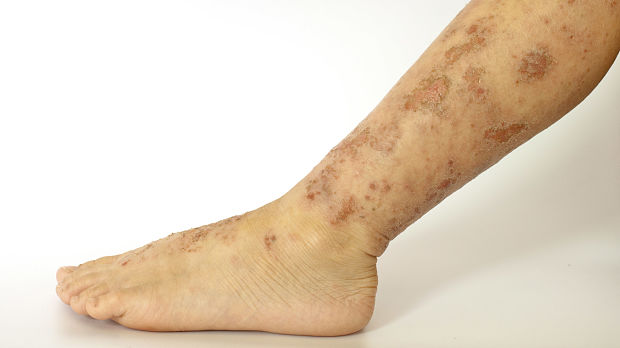Is Methotrexate Effective to Treat Nummular Eczema in Children?
Nummular eczema (NE) is a form of eczema that is characterized by itchy, oozing, coin-shaped lesions. NE negatively affects quality of life due to a recalcitrant response to topical treatments such as corticosteroids. Low-dose, oral methotrexate has been helpful in treating a number of other chronic inflammatory skin diseases and is generally well-tolerated, and serious side effects are rare.
A recent article presented a cohort study of 28 children treated with oral methotrexate for severe NE. The children had all been treated with first-line corticosteroids (with or without topical antibiotics) but had not achieved control of the disease. The average duration of disease was nearly 5 years. Children were given oral methotrexate, and were followed up at one month and then every three months for about one year. The researchers used outcome measures of complete or almost complete clearance (≥ 90% improvement), marked improvement (50%-89%), mild improvement (< 50%), and failure (poor or no clinical improvement after 3 months of therapy). Patients were also assessed for any adverse side effects.
The results showed that most of the children tolerated the medication well. Three children had to switch to subcutaneous methotrexate due to gastrointestinal problems. After the first month, about 20% had marked improvement; after three months that jumped to more than half of the cohort. By 6 months about 10% had complete clearance and by just over a year more than 35% saw complete clearance. Only 1 patient showed failure with the treatment.
The authors conclude that most patients with NE had a good to excellent response to methotrexate, with a very low incidence of side effects. They state that based on this small cohort, methotrexate is an effective, convenient, well-tolerated treatment in children with severe NE; especially when patients have failed to respond to conventional treatments.
